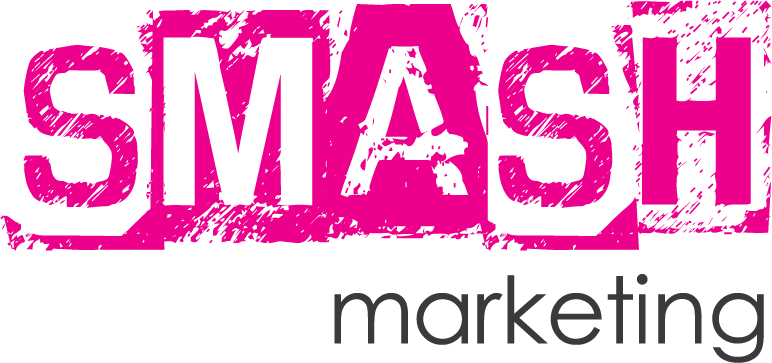Google Ads (formerly known as Adwords) can increase your company's online visibility, generate enquiries, and boost engagement. They're also great for getting results fast if you are short on work.
Choosing the right campaign based on your goals will make all the difference when it comes to seeing the results you need in the shortest amount of time.
If you're asking 'What are google ads and how do they work', we've made a guide to understand what each type of Google Ad can do to help you better understand which one is right for you.
Overall, there are nine types of Google Ad Campaigns, each with its own unique set of features and benefits, but we will cover the main campaigns we recommend that you can easily set up and get started with on your own.
Imagine this: You run a local business providing essential services like emergency veterinary care. You're ready to help pet owners in their time of need, but here’s the challenge—people don’t know about your clinic yet! So, how do you ensure that pet owners find you when they're in a rush? That’s where Google’s Search Ads come into play.
These ads are like digital lifesavers that appear in Google’s search results when someone is desperately looking for a specific service. Picture them as helpful little assistants directing pet owners to your clinic at just the right time.
For example, when someone types “emergency vet near me” or “24-hour animal hospital,” the ads that appear at the top of the search results with the 'Sponsored' label are Search Ads. You’re essentially paying Google to make sure your clinic is one of the first options they see when they need urgent care for their pets.

Now, to ensure your Search Ads are shown to the right people, you’ll need to think about the keywords they’re using when they search. If you’re an emergency vet, keywords like “24-hour vet clinic,” “emergency vet services,” or “urgent pet care” would be key. These keywords help link your services with pet owners who need immediate assistance.
But, it’s not just about picking any keyword that comes to mind. Understanding the intent behind a search is crucial. Without that understanding, you might attract clicks from people looking for routine check-ups instead of those who need urgent care, which wastes your budget.
Enter Google’s Keyword Planner—a brilliant tool to help you pick the right keywords. It shows you how many searches each term gets per month and even suggests additional keywords that might be relevant to your business. This way, you can easily see whether people are more likely to search for “emergency vet” or “24/7 pet hospital” and adjust your campaign to ensure you're reaching those who are urgently looking for your services.
Search campaigns can be incredibly effective for many types of businesses, but is it the right fit for yours? Let’s break it down so you can decide!
The success of a Search Campaign hinges on how well you can identify the right keywords. If you can easily come up with a list of terms that your potential customers might be searching for, you’re halfway there. Think about the specific words and phrases they’d type into Google to find a business like yours.
Firstly, if you’re in an industry where customers are looking for immediate services, such as “24-hour vet near me” then Search Ads make sure you’re there at the top of the results when they’re ready.
If your business relies on people searching for urgent or specific services, and you’re looking to increase visibility and attract highly targeted leads, a Search Campaign could be a great fit. It’s especially effective if you’re in a competitive industry where getting to the top of search results can make all the difference.
The second and most important thing to remember is that Search Campaigns require a LOT of maintenance. We conduct WEEKLY checks of all of our clients' campaigns to ensure that they are bidding on terms that are relevant to what they're offering. That means we help to ensure that their budget isn't being wasted on clicks that don't turn into actual paying customers.
This important step is what we call 'Search Term Checks'. Part of that process requires us going though all the terms that the ad has been displayed for, and we can tell google whether or not we want to be shown for it again.
However, if your budget is limited or you prefer a more organic, long-term strategy, you might want to consider Search Engine Optimisation strategies to build credibility using keywords that your target audience may be typing into Google.
Still need help to decide? Get in touch with our experts at Smash Marketing. We’ll walk you through the process and help you understand what strategy is right for your business.
When it comes to online advertising, a Display Campaign is like the big, bold billboard of the digital world. But just because it’s flashy doesn’t mean it’s the right fit for every business. So, how do you know if a Display Campaign is the way to go? Let’s talk about it.
Unlike Search Ads, which target people actively looking for something, Display Ads are more about catching people’s attention as they browse the web. Think of it like this: you’re not just showing up when someone’s looking for you, you’re putting your brand in front of them, even if they weren’t thinking about you before.
They’re perfect for introducing new products and services or just letting the world know your business exists.

Display Ads are all about the visuals. If you’ve got a product or service that looks good on screen, a Display Campaign can really make it shine. Whether it’s a stunning product photo or an eye-catching graphic, Display Ads are your chance to make a visual impact.
For example, if you run a boutique hotel, sell trendy clothing, or offer luxurious spa treatments, Display Ads can showcase the beauty and appeal of what you offer. But if your business is less about aesthetics—say, you’re a tax accountant—Display Ads might be a harder sell. Not impossible, but you’ll need to get creative with your visuals!
One of the coolest things about Display Campaigns is retargeting. Ever noticed how after you visit a website, their ads seem to follow you around the internet? That’s retargeting in action! It’s a way to gently remind people who’ve shown interest in your business to come back and take another look.
If you’ve got an e-commerce store, for example, retargeting can be a game-changer. Let’s say someone browses your site but leaves without buying—Display Ads can pop up on other sites they visit, encouraging them to return and complete their purchase. It’s like giving your potential customers a little nudge in the right direction.
Display Campaigns are ideal if you’re looking to build brand awareness, have visually appealing products or services, want to retarget potential customers, or have a clear and engaging message to share. They’re less about targeting specific searchers and more about spreading your message far and wide.
But remember, it’s all about the visuals! If your business shines in pictures and you’re ready to reach people where they’re spending their time online, then a Display Campaign might just be your ticket to success.
Display campaigns don't require the same amount of maintenance as search campaigns since the ad isn't really based on terms that people are typing into search, but more about showing up to someone who may have shown interest in a similar product or service in the past.
Display Ads are a powerful tool for getting noticed and staying top-of-mind with your audience. But if your business isn’t particularly visual or your message requires more context, you might want to consider other types of campaigns.
If you’ve ever searched for a product on Google and seen a row of images at the top of the search results, each with a picture, price, and store name, you’ve encountered Shopping Ads.

Shopping Ads are like the perfect shop window in the digital world—they showcase your products right where potential customers can see them, complete with images, prices, and even reviews. But how do you know if a Shopping Campaign is the right fit for your business? Let’s break it down
The most important question to ask yourself is whether you sell physical products that people can buy online. Shopping Ads are designed specifically for e-commerce businesses. They allow you to showcase your products directly in Google’s search results, complete with a picture, price, and other details.
If you run an online store selling anything from clothing to electronics to handmade crafts, Shopping Ads can be a game-changer. They make it easy for customers to find exactly what they’re looking for, and your product appears right there in front of them with all the key details.
But if your business offers services, digital products, or experiences (like consultations or online courses), Shopping Ads might not be the best fit. They’re really built for showcasing physical items that people can buy and have delivered to their door.
To run Shopping Ads, you’ll need to have an e-commerce website where customers can browse your products and make purchases. Google pulls information from your website and your product feed in Google Merchant Center to create Shopping Ads, so having a well-organised online store is crucial. If you’re still in the process of setting up your online store or don’t have one at all, you might need to get that sorted before diving into Shopping Ads.
However, if you don’t sell physical products, aren’t focused on direct sales, or don’t yet have an e-commerce site, you might want to explore other advertising options. Shopping Ads are a powerful tool, but only if they align with your business model and goals.
If you’re a local business looking to attract customers from your area, you might have heard about Local Service Ads, or what most people refer to as a 'Google Guarantee'.

Local Service Ads are a special type of Google ad designed specifically for service-based businesses that operate within a certain area. These ads appear at the very top of Google’s search results, even above regular text ads and organic listings. When someone searches for a service you offer—like “plumber near me” or “electrician in Norwich”—your business could show up in these prime spots.
What makes LSAs unique is that they’re highly focused on local customers who need services in their area right now. The ads show your business name, customer ratings, and contact information, making it easy for potential customers to reach out directly.
One of the big advantages of LSAs is that you only pay for leads that are directly relevant to your business. These leads come in the form of phone calls or messages from potential customers who’ve seen your ad and are interested in your services. This means you’re not just paying for clicks or impressions—you’re paying for actual, qualified leads.
So, does your business need Local Service Ads?
If you’re a plumber, electrician, locksmith, house cleaner, or any other type of service provider, LSAs could be a game-changer for you. They’re not meant for businesses selling products or for businesses that aren’t tied to a specific location.
LSAs are all about connecting you with customers in your local area. If your business serves a specific city, town, or region, LSAs can help you reach people who are searching for services nearby. This hyper-local focus means you’re more likely to attract customers who are within your service area and ready to book.
Performance Max is one of Google’s latest and most advanced advertising campaign types. If you’re looking to supercharge your digital marketing efforts, understanding what Performance Max is and how it works can help you make the most of your advertising budget.
Performance Max is an all-in-one campaign type that allows advertisers to run ads across all of Google’s inventory from a single campaign. This includes Google Search, YouTube, Display Network, Discover, Gmail, and even Google Maps. Instead of creating separate campaigns for each platform, Performance Max lets you manage everything in one place.

Key Benefits of Performance Max
Performance Max is particularly well-suited for businesses that want to:
However, if your business requires very granular control over individual platforms or prefers a hands-on approach to each campaign element, you might find the high level of automation in Performance Max limiting.
If you’re looking to simplify campaign management while maximising your reach and performance, it’s definitely worth considering. Whether you’re a small business or a large enterprise, Performance Max can help you achieve your marketing goals with minimal hassle and maximum impact.
If you need any guidance on which type of Google ad is right for your business, then please don't hesitate to reach out to our SMASHING team! With over 40+ years of experience, we have the know-how to help your business drive more traffic and generate more sales online.





